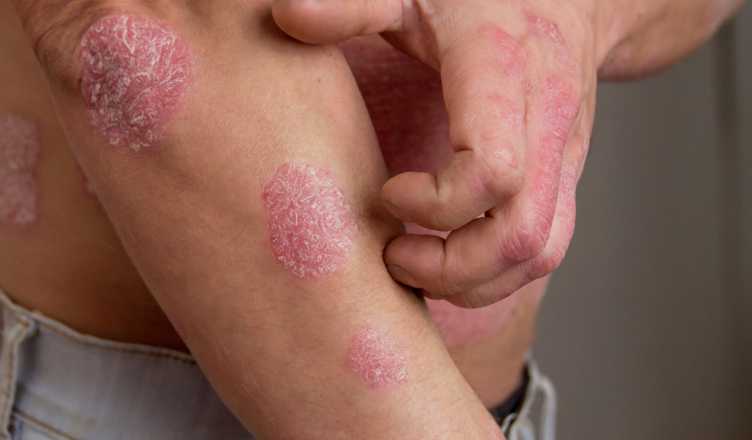Psoriasis is a common and chronic immune-mediated disease that affects millions of people worldwide. While there are a variety of treatments available, these often lack effectiveness and can also be associated with significant side effects. For people living with psoriasis, the condition can be both physically and emotionally debilitating. Often characterized by thick, red, scaly painful lesions on the skin, psoriasis is a chronic immune-mediated systemic disease with no viable or durable treatment options. Most cases need to be treated with multiple medications, creams and injections for a patient to manage the painful symptoms. However, recent research has shown that mesenchymal stem cells (MSCs) may hold the key to treating psoriasis. Stem cells are known for their unique ability to self-renew and differentiate into various cell types within the body. Specifically, these stem cells have been shown to have powerful immunomodulatory properties, meaning that they can help to balance the immune system and reduce inflammation. As such, MSCs may offer a highly effective treatment for psoriasis and other related conditions, finally providing people with long-lasting relief from their symptoms.
Stem Cell Therapy and Skin Conditions
Skin is the largest human organ. It is exposed to various external and internal factors affecting the body’s homeostasis. A number of mechanisms have been implicated in the development of skin disorders and diseases. Recently, there has been considerable interest in the role that stem cells and particularly exosomes play in human diseases, through their modulation of multiple signaling pathways. Stem cells have long been recognized as a powerful tool in regenerative medicine, due to their unique ability to regenerate damaged cells and create new, healthy ones. Human umbilical cord-derived MSCs effectively regulate immune cells. By understanding the inner workings of these versatile cells, scientists have been able to develop treatments that can address a wide variety of medical conditions, including skin health issues like burns and wounds. For example, stem cells or exosomes can be isolated from a patient’s own body or a donor’s and are then used to replace damaged cells in affected areas, speeding up healing and restoring vibrancy to the skin. Furthermore, by optimizing the treatment process and tailoring it to suit specific needs, researchers are continually uncovering new ways to harness the power of stem cells for the benefit of patients everywhere. Thus, it is clear that stem cells have become essential for healing damaged tissues and promoting overall skin health.
Treatment
As mentioned, the skin of those with psoriasis becomes thick, red and covered in silvery scales. Additionally some patients will experience joint deformation as well as changes to their nails from all this inflammation that builds up over time. When stem cells are transplanted to an individual by IV, they produce a wide variety of growth factors that promote a healing response throughout the body by repairing damaged tissues and while also repressing the immune response.
Research & Case Studies
Case Study #1
A 19-year-old male college student presented with a 5-year history of severe plaque psoriasis. https://www.hindawi.com/journals/cridm/2020/4617520/
“This treatment vastly improved the quality of life and the psychological well-being of the patient.”
Case Study #2
“The patient was a 47-year-old male, diagnosed with psoriasis in 1995. He had received various treatments for 25 years, but the psoriatic condition was not significantly improved. He was given three rounds of minimally manipulated umbilical cord-derived MSCs over 2 weeks. The erythema gradually disappeared. Three months after the 1st round, all erythema completely disappeared, and the psoriasis did not recur.” https://www.ncbi.nlm.nih.gov/pmc/articles/PMC8362539/
Over the past several years, there has been mounting evidence to suggest that changes in the DNA and epigenetic codes of stem cells play a critical role in the development of psoriasis. Numerous studies have found that these altered genetic codes increase the production of immature skin cells and cause inflammation in the skin, leading to the characteristic symptoms of psoriasis. Additionally, other researchers have identified changes in stem cell activity within the skin that are linked to variations in intensity and severity. Overall, these findings indicate that understanding how stem cells function could lead to new treatments and alleviate some of the negative effects of this condition on skin health.



